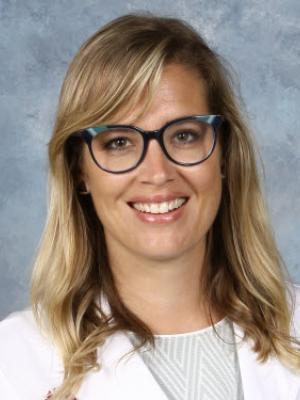PD Member of the Month

Kristen Mannoia, MD
Program Director, Riverside University Health System
What is your personal background in vascular surgery education (how long have you worked in the vascular field, why did you choose vascular surgery, etc.)?
Graduated fellowship in 2018 and knew I wanted to be involved in medical education from the get-go. I've been lucky to be involved in both vascular fellow and resident education and just started a new residency program at our county hospital, so I'm excited to be involved in designing a resident-focused program from the very beginning. I love the idea that I can have a potential impact on so many patients by training their vascular surgeons to be competent and caring.
If I had to boil it down: when people are scared they call a doctor, when doctors are scared they call surgeons but when surgeons are scared they call vascular. I chose vascular cause I like being the person in the room that makes everyone feel safer.
What is the most rewarding part of your job? as a vascular surgery Program Director? What is the most challenging part of your job?
Oooo...one of my favorite feelings is when I can let the resident figure something out for themselves. First the panic, then the realization when they took care of a bleeder or their operative plan worked or they worked through a tricky differential without me...makes me pretty stoked. I like that I can be confident in the resident even before they trust themselves and hold that uncomfortable space for them to grow. But it's challenging cause it goes both ways. I can't just relax into "this is how I've always done it" and assume that my way is the best when I'm teaching someone else, especially in a field as dynamic as vascular surgery. I have to be willing to grow and learn and be a bit uncomfortable sometimes too.
What are your personal goals within the vascular field?
I'd like to look back in 20 years and think that I contributed to the culture of the vascular field in a positive way. That we have a specialty where we support each other, treat our trainees well and provide excellent care for patients with vascular disease because we're cared for ourselves. So I guess my goal for now is to contribute to a department, division and residency where I can help make that true.
If you had a blank check to change medical education in America, what would you do first?
Make it free.
From your perspective, what qualities make a successful vascular surgery applicant?
Creativity, adaptability, persistence and empathy. So many vascular patients are written off as too...fill-in-the-blank. Too complicated? Get creative and change your plan when it isn't working. Too sick? Stick with them when other specialties give up. Too cranky? Think about what their life is like actually living with whatever vascular pathology they have and hear the story behind the "crankiness." Vascular surgery isn't for the faint of heart, but the trickier the challenge the more rewarding it is when you get through it.
What is a "fun fact" about yourself that you would like others to know?
When I'm not in the hospital I'm probably playing farmer in overalls and muck boots in our orange grove. I'm an unintentional fan of chaos gardening (judging by my vegetable jungle) and I love cuddling whichever of my clan is nearest at the moment: one Great Dane, two barn cats, 15 chickens (one an ambulatory amputee!), a horse, two wild and wonderful little girls and the world's best husband :)
